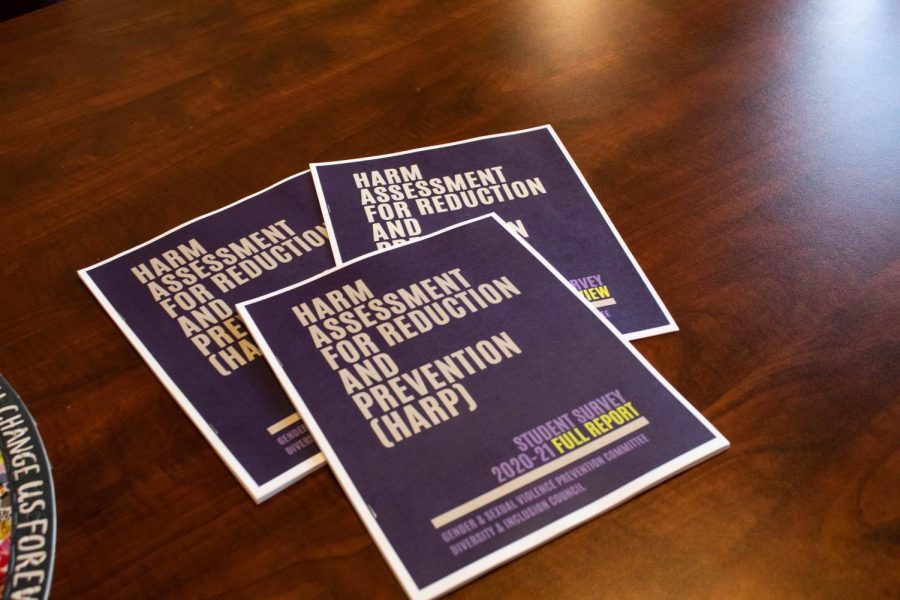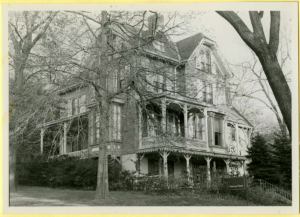HARP results released; Chatham campus culture questioned
December 5, 2022
In the 2020-21 academic year, a survey evaluating gender, sexual violence and discrimination on campus, the Harm Assessment for Reduction and Prevention (HARP) survey, was sent out for Chatham University’s student population to complete.
The survey, conducted by Dr. Jessie Ramey and Dr. Nichole Bayliss, was released in November 2022 on my.chatham.edu. The results come as Chatham University has been holding listening sessions related to the campus climate. One took place in November and another is scheduled for 11:30 a.m. to 12:30 p.m. Dec. 6 in the Mellon Board Room. An option to join via Zoom also is available in “Happenings” in my.chatham.edu.
In these sessions, the campus climate assessment – another study recently completed – will be discussed. However, some students, faculty and staff have been curious as to why the results of the HARP study haven’t been highlighted as prominently.
“This study seeks to identify student experiences with sexual violence, harassment, stalking, relationship violence and discrimination based on gender identity, gender expression, sexual and romantic orientation, and racial and ethnic identity,” reads the report. “Because every student has the right to an education free from discrimination, harassment and violence, Chatham conducted this campus climate study as part of its commitment to ensuring that all students can fully benefit from the school’s programs and activities.”
Results of survey
Safety
Many respondents of the survey reported having had positive experiences at Chatham.
“[Students] do perceive Chatham as being a very safe place. They do perceive their faculty and staff being very supportive. A lot of students shared those specific anecdotes and the support and safety and feelings around that,” Dr. Ramey said.
However, the survey highlighted some of the issues students have reportedly faced since coming to college.
Out of the 426 students surveyed, more than one in five reported feeling unsafe since their arrival, according to the report’s findings. About 20% of respondents reported that sexual harassment was a campus problem. Moreso, almost half (49%) of the students who took the survey reported campus climate experiences that ranged from microaggressions to sexual violence.
Among trans and gender non-conforming (TGNC) students, 20% reported being watched or followed from a distance, and 10% of ciswomen reported the same.
Sexual violence had a high rate of reporting in this survey. Of the TGNC students who took the survey, 14.3% reported being forced to engage in sexual activity with their partner whom they were in a relationship with, against their will. About 3.7% of ciswomen reported the same. Furthermore, nearly 50% of students reported intimate partner violence.
However, the data of all students, including those who were not in a relationship, showed that nearly 10% of TGNC and 2% of ciswomen were raped since their arrival at Chatham. Of those reporting rape, 43% of the perpetrators were Chatham students. On-campus rape was reported from 29% of respondents, and 57% said the rape occurred more than once.

Student Experiences
While half of TGNC respondents reported feeling represented at the University and in their course materials based on their gender identity or gender expression, 92% reported experiencing discrimination, harassment and non-acceptance of their gender identity. They shared feeling a general campus culture of misunderstanding around gender non-conforming identities.
LGBQA+ and Black, Indigenous and people of color (BIPOC) respondents shared similar sentiments. While many reported feeling accepted, 74% said they experienced discrimination, harassment and non-acceptance of their sexual or romantic identity. For BIPOC respondents, 78% said they had negative experiences, such as microaggressions, including feeling isolated, marginalized and tokenized.
There were 38% of respondents that reported hearing racial phrases or slurs, and in most of the cases, they were reported to have happened more than once. Less than a third (30%) of BIPOC respondents felt represented in University materials, and 38% felt represented in course materials.
Many respondents highlighted athletics, specifically men’s sports, as a contribution to the campus climate problem, according to the survey’s results.
The end of the survey gave space for respondents to share recommendations. An increase in diversity and training for all members of the Chatham community were prevalent responses from students who took the survey
Post-survey release
According to students, there has been little response so far from the University about the results of this survey.
“It feels hidden,” Shaelah Pepperman ‘23, a student co-investigator of the study, said.
To find the results online, go to my.chatham.edu. It’s under “Diversity, equity and inclusion,” then under a separate tab, “strategic plan assessment.” From there, scroll down to “HARP Student Survey.”
For continuing coverage, including responses from University representatives, follow the Communiqué coverage in print and online in the spring 2023 term.
Abigail Hakas, Carson Gates and Riley Hurst-Brubaker contributed to this story.








